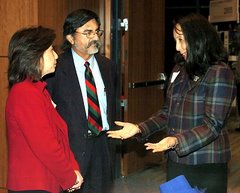The Court of Appeals erred in ignoring arguments advanced by the state in the motion for new trial.
To limit the record to arguments advanced by the state only to those advanced in trial court not only forfeits appellant of critical evidence corroborated by the state in later proceedings but it also misplaces that evidence. The record at appellants Motion for New Trial, and must be included in order to preserve these facts not included in the trial court record. Texas Rule of Appellate Procedure 21.1 provides that a motion for new trial is a prerequisite to presenting a point of error on appeal when necessary to adduce facts not in the record
; THE TRIAL JUDGE ABUSED HIS DISCRETION BY not DIRECTING THE STATE TO securE the testimony of A SUBPOENAED MATERIAL WITNESS; Mary Cano; AFTER HEARING THE STATE’S TESTIMONY “ I know personally I can pick up the phone and call her and get her here if she needs to be here” 1
I. Did the 13th Court of Appeals CONSIDER THE FACTS AND LEGAL ISSUES PRESENTED BY THE STATE ON APPEAL?
II. Did the 13th Court of Appeals err in its application and modification of Siverand?
i. In Siverand: The appellate court must make an independent examination of the merits of the claim of error. Id. However, this examination must necessarily be limited to the arguments advanced in the trial court, otherwise, we run afoul of the prohibition of advancing argument on behalf of the parties.
ii. In Haley, Siverand is a modified version: Pursuant to Siverand, we will make an independent examination of the merits of appellant's points of error and any opposing arguments are limited to those advanced by the State in the trial court. Id.
iii. State admits on record in open court, “She’s (Mary Cano) not hiding out, as Ms. Haley testified to. I can – I know personally I can pick up the phone and call her and get her here if she needs to be here.
iv. This application of Siverand excludes testimony favorable to appellant through no fault of her own.
v. The application of Siverand in this circumstance suppresses testimony unfavorable to the state.
vi. This application of Siverand rewards the State for failing to file a reply brief.
III. Did the 13th Court of Appeals err under 47.4 of the Tx Rules of Appelate Procedure in issuing a Memorandum Opinion in response to Appellant’s brief?
Did the appellate court err by not addressing the points of error in Appellant’s original appeal?














No comments:
Post a Comment